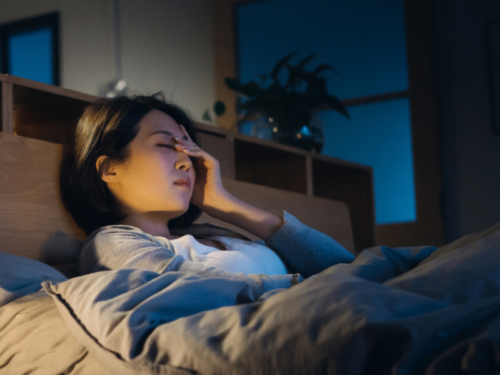Childhood Trauma Quiz
Written By: Charlie Health Editorial Team

Clinically Reviewed By: Dr. Don Gasparini
December 13, 2023
Childhood trauma can have lasting effects on your mental health. Take this quiz to learn if you faced childhood trauma and see how to get help if you’re struggling.
Learn more about our Clinical Review Process
Ready to start your journey?
Ready to start your journey?
Disclaimer: This quiz is not a diagnostic tool or substitute for professional mental health advice. It is not meant to imply the prevalence of any mental or physical health issue(s).
What do the results of this childhood trauma quiz mean?
This quiz isn’t meant to diagnose any mental health conditions, and it isn’t a substitute for professional mental health support. Instead, this quiz is designed to help you understand how likely it is that you’ve faced childhood trauma. Knowing your risk of having faced childhood trauma can help you understand your behaviors and connect with help as necessary.
What is a normal score on this quiz?
There aren’t any “normal” or “abnormal” results for this quiz. Instead, the results of this quiz exist on a spectrum of childhood trauma risk, ranging from a low likelihood of childhood trauma to a high likelihood of childhood trauma. As mentioned above, experiencing childhood trauma is unfortunately common, with over 60% of adults reporting at least one ACE.
What is a high score on this quiz?
A high score on this quiz reveals that you’ve most likely experienced childhood trauma. This probably means you often or very often experienced the examples listed in the quiz. Seeking help from a mental health professional, especially one that is trauma-informed, can help you address childhood trauma and heal.
What is a low score on this quiz?
A low score on this quiz reveals that it’s unlikely you have experienced childhood trauma. This most likely means you rarely or never experienced the examples listed in the quiz. However, people who don’t face childhood trauma may still experience trauma later in life and can still benefit from professional mental health support.
Who is this childhood trauma quiz for?
This childhood trauma quiz is designed for anyone who wants to know if they’ve faced childhood trauma. Knowing if you have faced childhood trauma can help you understand your challenging behaviors and empower you to take steps toward trauma recovery.
Answering the short, 10-question childhood trauma quiz above will help establish how likely it is that you’ve faced childhood trauma. However, this quiz isn’t a diagnostic tool and doesn’t replace advice from a licensed mental health provider.
After taking this quiz, it may be helpful to talk with a mental health professional who can help you process any childhood trauma you may have faced and provide you with tools to manage past traumas effectively.
How can taking this childhood trauma quiz be helpful?
Taking this childhood trauma quiz can help you recognize and understand past experiences that may affect your present well-being. It can also provide a structured way to reflect on potential ACEs, which are outlined in the examples given in the quiz. Finally, knowing the likelihood that you’ve experienced childhood trauma can empower you to seek the right kind of support, such as therapy. Basically, this quiz is a tool for self-awareness that may also serve as a jumping off point for addressing the effects of childhood trauma.
What exactly are adverse childhood experiences?
Adverse childhood experiences (ACEs) are traumatic events or circumstances that happen before the age of 18 and can have a significant negative impact on a person’s physical, mental, or emotional well-being.
Unfortunately, ACEs are relatively common, with a Centers for Disease Control and Prevention (CDC) study showing over 60% of adults reporting at least one ACE. Examples of ACEs include:
- Physical abuse, emotional abuse, verbal abuse, or sexual abuse
- Loss of a parent or primary caregiver due to death, divorce, or incarceration
- Witnessing violence inside or outside the home
- Growing up in a home with people struggling with substance abuse
- Growing up in a home with people struggling with mental health conditions
- Other forms of stress or adversity faced during childhood in the home or community
How is childhood trauma linked to health outcomes?
Research consistently shows that ACEs are linked with negative health outcomes. In other words, childhood trauma can take a toll on mental and physical health.
One study using national data substantiated existing research that ACEs can have negative effects on children’s well-being, including academic performance and health. The study, which looked at the prevalence of ACEs in children under six years old, found that financial hardship and parental mental health issues (both considered ACEs) increased the chances of long-term health and developmental issues. The study also found a connection between the number of ACEs and an increased risk of multiple problems—another finding that’s long been substantiated by research.
But these outcomes aren’t a given. On the flip side, recent research suggests that preventing ACEs could greatly reduce national health issues, including national rates of depression, kidney disease, stroke, coronary heart disease, cancer, and diabetes. Additionally, preventing ACEs is linked to lower risks of unhealthy behaviors like smoking and drinking in adulthood, as well as lower chances of facing challenges like unemployment. So, while childhood trauma may be associated with negative mental and physical health outcomes, preventing and quickly addressing childhood trauma may make it possible for people to see improved well-being.
If you’ve been struggling with the effects of childhood trauma, remember: you are not alone. Help is available in just a few clicks – fill out our quick online form to verify your insurance and see if Charlie Health is the right fit for your mental health needs.


